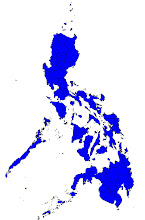http://www.philstar.com/Article.aspx?articleId=547107&publicationSubCategoryId=63
MANILA, Philippines - Three days before the start of the official campaign period for candidates in national polls, the Commission on Elections (Comelec) issued its guidelines on campaigning.
In Resolution 8758, the Comelec said that those running for president and vice-president are authorized to spend only P10 for every voter. Political parties, on the other hand, may only spend P5 for every voter.
Candidates for senators down to city/municipal councilors with political parties are allowed to spend P3 per voter. The parties are allowed P5 expense for each voter.
Independent candidates for positions other than president and vice president are allowed to spend P5 per voter.
“We are going to start the campaign period on Feb. 9 for national candidates,” said Comelec spokesman James Jimenez in a press briefing.
Those gunning for local positions may officially start campaigning on March 26. But the campaign period for both local and national polls ends on May 8.
Jimenez has advised national candidates to re-organize their infomercials and campaign streamers and posters to meet the standards for campaigning.
“Once Feb. 9 starts, all of these things will be contraband and will no longer be allowed or if they persist in using them, there might be consequences for your campaign,” he noted.
Infomercials and other campaign materials released by candidates prior to the campaign period are not covered by the campaign spending limits based on a Supreme Court ruling decriminalizing premature campaigning.
Jimenez has observed that many of the infomercials and campaign materials posted in public places “fall far outside” the limits set in the resolution.
“They would be well advised to start taking down these posting, to stop showing their ads,” he said, addressing the candidates and their supporters.
“They could be open to accusations of illegal campaigning. Definitely, these are prohibited campaign modalities,” he added.
The resolution states that for “broadcast election propaganda,” national candidates are allowed 120 minutes on television or cable television exposure and 180 minutes on radio “whether by purchase or donation wherever located per station.”
Local candidates, on the other hand, are allowed 60 minutes on television or cable television and 90 minutes on radio.
Television and radio guestings, however, are not covered by the limits.
For published propaganda, the maximum size of print advertisement for each candidate, whether for national, local or party-list polls, is one-fourth page for broadsheets and one half page for tabloids.
MANILA, Philippines - Three days before the start of the official campaign period for candidates in national polls, the Commission on Elections (Comelec) issued its guidelines on campaigning.
In Resolution 8758, the Comelec said that those running for president and vice-president are authorized to spend only P10 for every voter. Political parties, on the other hand, may only spend P5 for every voter.
Candidates for senators down to city/municipal councilors with political parties are allowed to spend P3 per voter. The parties are allowed P5 expense for each voter.
Independent candidates for positions other than president and vice president are allowed to spend P5 per voter.
“We are going to start the campaign period on Feb. 9 for national candidates,” said Comelec spokesman James Jimenez in a press briefing.
Those gunning for local positions may officially start campaigning on March 26. But the campaign period for both local and national polls ends on May 8.
Jimenez has advised national candidates to re-organize their infomercials and campaign streamers and posters to meet the standards for campaigning.
“Once Feb. 9 starts, all of these things will be contraband and will no longer be allowed or if they persist in using them, there might be consequences for your campaign,” he noted.
Infomercials and other campaign materials released by candidates prior to the campaign period are not covered by the campaign spending limits based on a Supreme Court ruling decriminalizing premature campaigning.
Jimenez has observed that many of the infomercials and campaign materials posted in public places “fall far outside” the limits set in the resolution.
“They would be well advised to start taking down these posting, to stop showing their ads,” he said, addressing the candidates and their supporters.
“They could be open to accusations of illegal campaigning. Definitely, these are prohibited campaign modalities,” he added.
The resolution states that for “broadcast election propaganda,” national candidates are allowed 120 minutes on television or cable television exposure and 180 minutes on radio “whether by purchase or donation wherever located per station.”
Local candidates, on the other hand, are allowed 60 minutes on television or cable television and 90 minutes on radio.
Television and radio guestings, however, are not covered by the limits.
For published propaganda, the maximum size of print advertisement for each candidate, whether for national, local or party-list polls, is one-fourth page for broadsheets and one half page for tabloids.




Church vows 10 million vote?
ReplyDelete10 million votes? what is CWOW? never heard of it! who is Archbishop John e.ayudtud?
Did anyone run a background check on this ayudtud? for all i know he cannot deliver even 10 votes for any candidate. if there are nuisance candidates, this ayudtud is a nuisance endorser in order for him to gain media milage. this man has no members at all! i this is crazy! chairman Fernando ingat kayo nuisance yan! masyado kayo nagpapaniwala sa mga tao na ang hangad eh manloko ng kapwa nakakahiya!